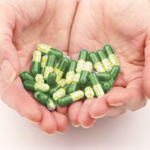When Pfizer, the world's largest drug maker, acquired 40% of Brazilian generic pharmaceutical firm Laboratorio Teuto Brasileiro in October last year, it wasn't a big surprise for industry watchers. Pfizer isn't the only pharma giant with an eye on Brazil's US$26 billion pharmaceuticals industry and its small but growing niche in generic drugs. A year earlier, French pharma firm Sanofi-Aventis bought Medley, Brazil's leading generics brand with annual sales of around US$286 million, in a US$679 million deal.
Other such deals could be on the way, predict some experts. "The big pharma companies worldwide are struggling with an absence of big blockbuster drug discoveries. They are losing revenue and cutting research," says Odinir Finotti, president of Pró Genericos, a Brazilian trade association representing 95 generic pharmaceutical firms. "So part of their strategy has been to buy generic drug companies, because that is where a lot of the growth is coming from."
Growth, indeed: In Brazil, sales last year of generic drugs — which are nearly identical reproductions of off-patent medications and are distributed without patent protection — increased 53% from the previous year, to around US$3.5 billion, according to Pró Genericos. Overall, Brazil sold more than 330 million units in 2010, up from roughly 233 million units of generic drugs in 2007.
But there's still plenty of untapped potential — less than 25% of the drugs sold in Brazil are generic drugs, compared with around 50% in the U.S. and 45% in the European Union, says the trade group. It is, however, by far the largest generic drug market in Latin America, and RNCOS, an industry research firm, forecasts that Brazil's R$4.5 billion (US$2.7 billion) generic drug market will post a compound annual growth rate of 19% over the next two years.
That potential is clearly not lost on New York City-based Pfizer. With the help of the recent Brazilian acquisition, Pfizer is aiming to regain lost ground following the end of the patent on Lipitor, its US$11.4 billioncholesterol drug, as it adds the generic version of that drug to Teuto's portfolio of 250 products. Perhaps more important, the deal offers Pfizer a chance to acquire full ownership of Teuto in three years, making U.S. firm a de facto "generic" pharmaceutical company and Teuto a thing of the past.
Generic Superhero
Overall, prospects for Brazil's entire pharma sector look brighter than they have in a long while. "My sense is you'll get growth from both sides of the industry, though generics will continue to outpace [the rest of the sector]," says Felipe Monteiro, a Wharton management professor. "Brazil is a serious market for these companies. It's now part of a global chess game, where you produce low-cost drugs and generics there and ship them to Chile or Europe."
Brazil wasn't always a part of that game. Its generic drug story began just a few years ago, when its public health service was struggling to provide the hundreds of thousands of HIV patients in the country with free prescriptions. In 2004, the Brazilian Health Ministry asked Abbott Labs, the multinational producer of HIV-AIDS drug Kaletra, to cut its price by 42%, to US$0.63 per pill, to no avail. At the time, the government was spending US$51.4 million on the drug. That amount increased to US$95 million by the following year, which is when the ministry made a final threat to break the patent on the drug by turning to the World Trade Organization (WTO), which allows patent breaks under serious health emergencies.
Before it could be taken to the WTO, however, Abbott agreed to both cut Kaletra's price and keep it stable for six years. That agreement, which ends this year, has saved the government US$339.5 million, according to the Health Ministry.
While Kaletra was let off the hook from compulsory licensing — which allows the government to force a company with a patent to share its knowledge with the state — Merck had no such luck with Efavirenz. The patent break on the medication, which is a class of drug that slows the spread of HIV, drove down the price to US$0.44 from US$1.56 per unit and saved Brazil R$60 million, the Health Ministry says. The government gave the rights to Merck's drug to Brazilian lab Fiocruz to begin making it locally in 2009. Of the 630,000 people in Brazil with HIV today, roughly 85,000 receive the drug as part of state-sponsored health care.
Border Crossing Blues
Brazil's growing generic drug industry has been no less contentious in other parts of the world. According to a Bloomberg report, brand-name pharmaceutical companies like Sanofi-Aventis, Novartis and Eli Lilly were unhappy with growing generic drugs exports from both Brazil and India and began alerting EU customs officials about shipments of drugs from those countries that are suspected of intellectual property infringement. But after roughly 17 seizures at EU borders of Indian-made generic drug medications over the course of a year, the two emerging markets cried foul.
In a joint statement made in January 2009, Brazil's foreign minister and India's trade minister said EU policies on drug shipments were incompatible with WTO rules and had a “highly negative systemic impact on legitimate trade of generic medicines, South-South commerce and national public health policies." In December 2010, India and the EU made peace and backed away from involving the WTO, a move welcomed by the Brazilian Health Ministry.
Brazil's government clearly isn't shy about giving its domestic generic drug firms a boost, says Eduardo J. Gomez, a public policy professor at Rutgers University, who is currently researching a book comparing Brazil and U.S. responses to AIDS and other illnesses. Among the global pharma firms, "there has been a sense that the Brazilian congress would break patents on complicated and costly drugs as they threatened to do with Abbott Labs. They have never done this — yet," he observes. "But those threats have been serious enough that big multinational pharmaceutical companies like Pfizer have to take the big Brazilian labs seriously now."
Yet the multinational pharma companies aren't about to let go of their patents without a fight. Companies like Pfizer have filed at least 60 lawsuits to extend patents that are about to expire, reported the newspaper Folha de Sao Paulo a year ago. When they can't extend the patents, the strategy appears to be to buy the drug companies that will eventually make and sell the generic versions. As for Brazil's generic labs, they see what the big pharma companies are doing, which is one reason why local players Eurofarma and Ache are considering merging and listing the new R$3.3 billion drug company on the Brazilian stock exchange, the BM&F Bovespa.
Over the last two years, Eurofarma has reacted to the changes by beefing itself up with various regional deals. Last year, for example, it acquired Chilean companies Volta and Farmindustria and 93-year-old Uruguayan laboratory Gautier, having already bought Argentine laboratory Quesada in 2009.
A Shot in the Arm
Amid that activity, overall generic drug sales are expected to grow faster than the pharma sector and account for more than 20% of Brazil's market by the end of this year, according to a 2010 report by Epsicom Business Intelligence in the U.K.
With most generic pharma investments going into production facilities, researchers at RNCOS predict that Brazil will evolve into a production hub, competing head on with the likes of China and India and providing a platform for multinationals to develop and sell branded and generic versions of their off-patent medicines into other Latin American markets, if not further afield.
Brazil's government has been an especially active investor. Since 2008, it has injected R$4 billion into private labs for medical research, equipment, chemical agents and diagnostic materials. One of its primary aims is to get home-grown labs to innovate and expand their relationships with global R&D labs, as was the case with Fiocruz. Two years ago, the Brazilian firm partnered with a Ukrainian lab called Indar to transfer know-how on its insulin drugs. That US$200 million deal led to insulin medication being produced in Brazil for the first time. Relationships like that, fostered by the government, could help Brazil meet at least 25% of its insulin needs, or around 50 million doses annually, in the near future, according to the Health Ministry.
Last year, Brazilian labs produced around 22 different off-patent medicines for Alzheimers, hemophilia, osteoporosis, AIDS, asthma and many more diseases, leading to the government saving around R$170 million annually when buying medication for state-own hospitals — around 14% of the Health Ministry's pharma budget.
The government says it is committed to making cheap, quality drugs widely available throughout the country. Whatever is left over, can be exported. So far, very little is left over. The country had a trade deficit in the drug markets of around $4 billion in 2010, estimates RNCOS. Of the 2,792 generics registered in Brazil, 90% are made locally.
But local experts say it's still early days for Brazil's pharma industry, and the challenge now is for Eurofarma, Aché and other local drug makers to bolster their R&D investments to bring their own patented drugs to market. As Finotti of Pró Genericos sees it, "We can't just have a market dominated by generic growth."



